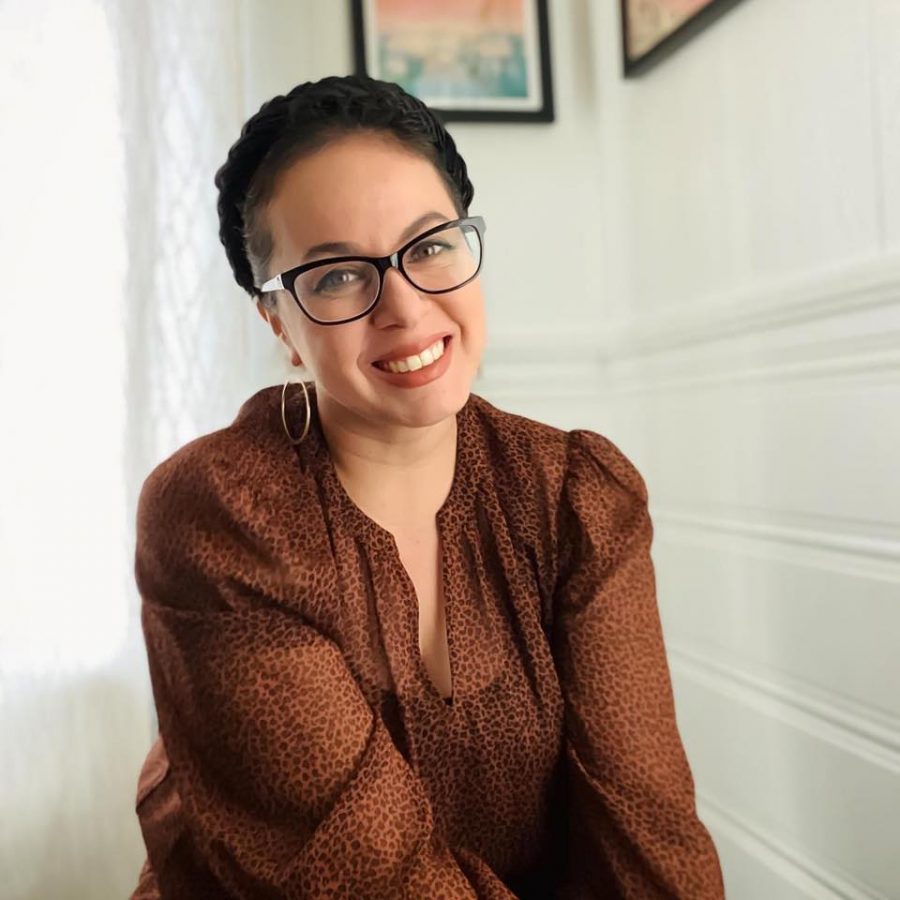CSUSM Arts and Lectures Series Presents: Tell Them Where You’re From: Teaching Our Lives/Stories with Dr. Irene Sanchez-Diaz
Photo taken from CSUSM Events website.
Dr. Sanchez-Diaz shared the importance of sharing one’s story at the latest Arts & Lectures event.
November 10, 2021
Throughout the COVID-19 pandemic, the CSUSM community has made numerous efforts to incorporate more events that focus on social justice, community engagement and healing through virtual programs. These events have recognized students and staff that have gone above and beyond to make sure that our campus was safe once again.
Due to campus maintaining the hybrid model of teaching, this fall semester has been the first experimental trial of this new way of learning.
The collaboration of in-person and online courses and events has provided students with access to information in a more opportune format allowing them to be present within any setting, not just physically on campus. This model of learning has brought CSUSM many amazing ways to showcase an immense number of public speakers, teachers, artists and leaders to campus this academic year.
On Oct. 19, students had the opportunity to attend the “Tell Them Where You’re From: Teaching Our Lives/Stories” event with Dr. Irene Sanchez-Diaz via Zoom.
In this presentation, Sanchez-Diaz shared her personal experiences within the education system as a student and now as a teacher and writer in Riverside and Los Angeles County. She discussed topics such as social justice, ethnic studies, heritage, education, teaching/mentorship and even read some of the poetry pieces she has written over the years.
Dr. Irene Sanchez-Diaz is a poet, writer, educator, mother and public speaker. She received her Ph.D. in educational leadership and policy studies from the University of Washington and received her bachelor’s degree in sociology and Latin American/Latino studies from the University of California Santa Cruz.
Sanchez-Diaz opened her presentation with a complex and interesting statement, “what it’s like teaching and studying Latinx studies.” Through this first slide, she gave a bit of background as to why she believed teaching Latinx studies was crucial to societal growth and how this country’s educational system could do better in regards to respecting and recognizing cultural diversity.
She went on to tell her audience about why telling others who you are is so important, especially in society today. Sanchez-Diaz provided three key components in her explanation.
The first was that there is a significance in sharing our lives and stories with other people because we are able to learn more from each other when we listen,opposed to constantly responding. The second being there is a influx of Latina/o/x student learning loss for future generations because education systems within the U.S. tend to disregard or exclude historically significant events associated with cultural contexts. And third, the transformative education through ethnic studies because people have the right to have the freedom to learn about their heritage and the opportunity to heal from generational and present trauma.
Additionally, Dr. Sanchez-Diaz began to explain more about her personal experiences within the education system as a student. As a community college student, she described herself as a student that had little motivation to maintain a good academic standing with her university.
However, she did tell us that although she did not consider herself a good student, she still believed that there was a light at the end of the tunnel and pursued her journey in higher education for that reason.
Dr. Sanchez-Diaz was captivating in the ways in which she described her teaching methods and why she believes teaching enthic studies is so crucial to personal and social development. She discussed that as a teacher, she has learned that expressing to your students that you care, supporting and encouraging them is more effective than simply teaching them from a place of authority.
Furthermore, Dr. Sanchez-Diaz explained how she found that judgments and capabilities based on grades are highly valued in our society today. Instead of this being used as a tool for success, it is used as a form of pressure that can consume a student’s academic future.
The significance lies in discovering what you don’t see or understanding that you don’t know what others are going through and recognizing that each student is experiencing their own challenges and struggles in their life.
Throughout the presentation, she had all of her viewers to think about three different questions and after reflecting, each person would put their story or comment on a shared document where everyone was able to see their response anonymously. She would then read aloud the responses she received and respond by complementing the commenter or relating it back to its connection with identity.
Lastly, Dr. Irene Sanchez-Diaz concluded with a discussion about why it is our job as a member of society to build connections, contextualize our entire history, and express respect for our community, life and family. She then closed with her favorite poem she wrote.
If you would like to learn more about Dr. Irene Sanchez-Diaz or read her work, be sure to check out her blog titled “Xicana Ph.D.” found at https://xicanaphd.com.


